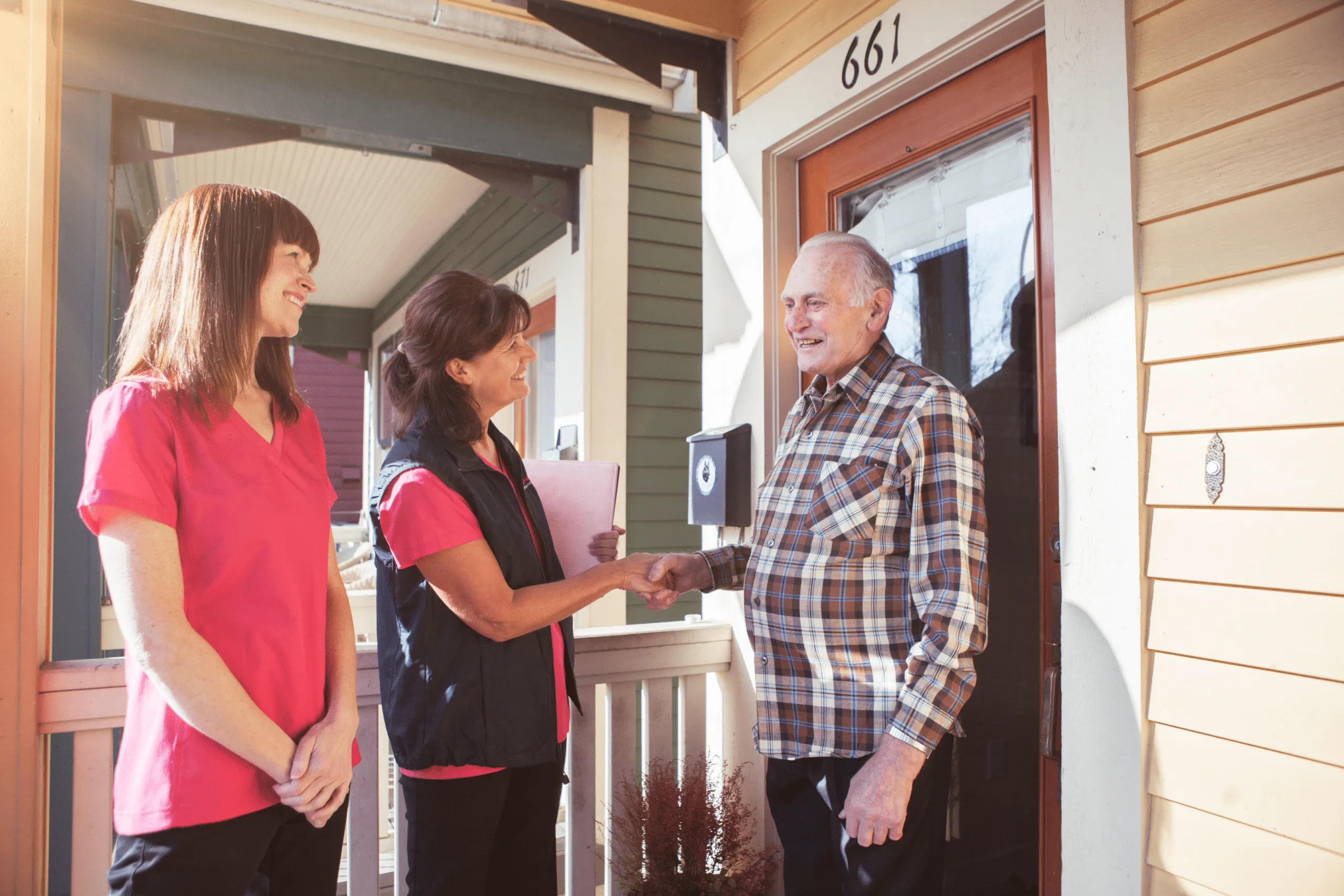Taking care of your mental health becomes increasingly important as you age. Like your body, your brain is a muscle that needs to be strengthened and taken care of.For World Mental Health Day, we gathered our top five ways to boost mental health in seniors.What is mental health?The National Alliance on Mental Illness (NAMI) estimates that one in five US adults struggle with a mental health condition each year. But what exactly is mental health, and how can you take care of yours?Mental health is defined by the World Health Organization as "a state of wellbeing in which an individual realizes his or her own abilities, can cope with the normal stresses of life, can work productively, and is able to make a contribution to his or her community."Mental health isn't one size fits all. A senior's mental health can be shaped by a variety of factors: their biology, their social life, if they belong to a marginalized group, their financial situation, or their lifestyle choices. It can also be a combination of those things.The most common mental health disorders are:
- Anxiety disorders
- Mood disorders
- Schizophrenia disorders
If you are struggling with your mental health, we recommend talking to a doctor, psychologist, or mental health practitioner about potential treatments. While more serious mental health conditions are incurable, research suggests that small changes to your lifestyle can make a difference. Here are five strategies to build better mental health in your everyday life.
1. Take care of your physical health
Getting physical activity is a key part of maintaining good mental health. Studies have shown that engaging in aerobic exercises, like walking, jogging, swimming, gardening, or dancing can help reduce blood pressure, alleviate anxiety and depression, and improve cognitive function. As a senior, you should aim to get at least two or three hours of physical activity each week, or 15 to 20 minutes each day to see the benefits.On top of the physical benefits, having a consistent exercise program improves mental health by being a welcome distraction in the day. It gives you something to do or somewhere to go, which in turn, can build up your self efficacy and self-esteem.Seniors who exercise also reported better sleep habits and higher levels of energy and stamina throughout their day. Who doesn't like waking up feeling well rested?

2. Nourish your body with a healthy diet
A healthy diet is linked to better health outcomes generally, but it's especially important for maintaining seniors' mental health.Making poor eating choices can negatively impact your brain health. Foods that are high in fats or refined sugars weaken your body's ability to regulate insulin—which can lead to inflammation and an imbalance between free radicals and antioxidants. Swapping out overly processed, refined foods for whole grains and healthy fats is an easy way to improve your mood and build better cognitive function. Diets that are rich in vegetables, leafy greens or fermented food, like the Mediterranean or Japanese diet, improve nutrient absorption from food; activating certain neural pathways between the brain and the gut.A well-balanced meal could include:
- Lots of vegetables and dark leafy greens
- Nuts and seeds
- Fermented foods like yogurt, Kefir, or miso
- Whole grains
- Organic meat and wild-caught fish
3. Maintain social connections
Sometimes, improving your mental health is as simple as calling up a friend or family member for a chat. Humans are social animals, and although your circle of friends and family may decline as you age, social interaction is still important to your overall wellbeing.How many social connections you have matters less than the type and quality of those relationships. Having deep and meaningful connections can give seniors a sense of purpose and bring joy and contentment to their day. While strong social bonds have a positive influence on brain health and function, by contrast there's evidence that loneliness increases the risk of cognitive decline.Some ways to add more social activity to your life include:
- Find group activities at your local senior center
- Encourage home visits from friends or family
- Hang out in the front garden and engage passers-by
- Take steps to rebuild distant relationships
If you're a senior in a more remote area or have trouble leaving your home to do activities, a companionship care service might be a useful solution. A qualified expert caregiver can visit a few times a week to keep you company, assist with chores like cooking or cleaning, or simply lend a friendly ear.
4. Stress management
The amount of stress you experience correlates to your physical and mental health. Even if you retired years ago, situations like losing a loved one, financial uncertainty, family feuds, or watching too much bad news on TV can all add undue stress to your life.As you age, managing this stress becomes a key part of maintaining strong mental health. According to the American Psychological Association, signs of stress in seniors are:
- Problems switch sleep
- Difficulty concentrating and making decisions
- Feeling pressured or rushed
- Eating too much or not enough
- Irritability and moodiness
Adding relaxation techniques into your usual routine can help reduce the negative mental health consequences of too much stress.If you're looking for new stress-relieving activities, here are a few ideas:Meditation: Taking just five minutes a day to close your eyes, shut out the whole world, and meditate has multiple health benefits. Meditation has even been shown to improve mental resilience, helping you build immunity against stressful situations.Yoga: As one of the oldest physical practices in the world, yoga can help you form a better mind–body connection, relaxes the mind, and improves concentration and awareness. Keeping up a regular yoga practice significantly lowers levels of anxiety.Puzzles: Games like crosswords or sudoku require focused concentration. This can help seniors get into a relaxed flow state and provide positive mental stimulation. A jigsaw puzzle serves a similar role. Focusing on a single image without letting other thoughts enter your brain decreases stress and improves cognition.Plus, with free apps designed specifically for stress management and mindfulness, it's easier than ever to stay cool, calm, and collected.
5. Finding a Sense of purpose
A sense of purpose is like a guiding light. It shines bright on things that align with your values and goals for living and leads you toward an existence full of meaning and intention. It's what keeps seniors fulfilled and mentally stimulated, even when faced with challenging situations.It also has lots of mental health benefits. In a study of almost 7000 adults between the ages of 51 and 61, those without a purpose were much more likely to die before their purposeful peers.The following behaviours can help seniors find their purpose:Keep working: You don't have to stay in a salaried job to find meaning. Many seniors find fulfillment in volunteer work, personal projects, or home improvement.Find small pleasures: Whether you enjoy a hot cup of tea by the fire or the view on a hilltop, noticing moments of joy and gratitude is great for mental health.Contributing to society: Making the world a tiny bit better than it was before can be a powerful way to lift a senior's spirits. Think volunteering, writing letters to the editor, or giving to organizations you believe in.


























